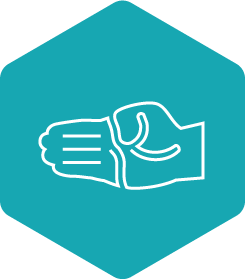about CHANGE
“If you can see your path laid out in front of you step by step, you know it’s not your path.
Your own path you make with every step you take. That’s why it’s your path.”
Mastery is what enables you to create at your best, perform at your best, and lead from your best self.
Achievement flows from it, and with consistency this is followed by a strong reputation.
For some people, learning is just a means to an end. But for many of us, the passion for learning brings us to life. It's where we get our energy.
The road to mastery
I don't believe in quick fix, fake-it-til-you-make-it shortcuts.
Nor do I favour simplistic, cut-and-paste formulas that promise "just do what I did."
Whilst shortcuts and formulas can get results, they seldom yield fresh awareness and new learning. Mastery results from highly effective learning.
“Change is the end result of all true learning.”
Pause.
The mastery process starts with reflection. You look inwards to find the questions you need answers to.
But this is the opposite of what we often do. It can be tempting to think the answers are ‘out there.’ Maybe it’s even comforting to think that way.
But the truth is that our answers are usually found inside. Because we’re unique. No two people have the same personal history.
Think.
To master a challenge, you have to see the change clearly in your mind's eye. Once you believe it's possible, you can commit.
Changing our mindset is not the result of conscious thinking.
Our subconscious mind is the root of our deepest thinking, so we have to learn to harness it. This is seldom a skill that is taught, because it's hard to teach. Luckily, it’s not hard to learn.
Change.
Reality check: you will always lack time, and have more to learn. So waiting to feel ready will add up to not starting.
Mastery is less a function of time, and more a function of learning efficiency. A decade of experience can mean two things: ten years of experience, or one year of experience repeated ten times.
Fast change starts with strong commitment. It’s more important than your vision, which often has to be changed anyway once you meet reality. So if you don't know where to start just ask , "How committed am I to this thing?"
Your Mastery Projects
Our Mastery Projects have the potential to create change, within us and for others. So they're precious to us, and to the world. And they feel special.
“The only source of knowledge is experience.”
But in the early days of our journey, our Mastery Projects - and egos - can feel fragile. We can easily make poor choices when venturing beyond our experience.
Chess grandmaster Joshua Waitzkin once chose a mentor that was more like his adversaries, who were really different from him. He was a strategic chess player. They were aggressive. So he reasoned that he'd learn how to beat them from a mentor just like them.
But as it turned out, he couldn't learn to be like his mentor. This taught him that the true nature of mentoring - and learning - is actually very personal.
The best mentors are ones that understand you because they share similar traits, experiences and strengths. They know how to help you, because they are like you.
My latest Mastery Project is NeuroJitsu: a way of thanking my mentors by paying the favour forward.
With your support, I sincerely hope that NeuroJitsu will become a community of generous, like-minded people on the road to mastery.





